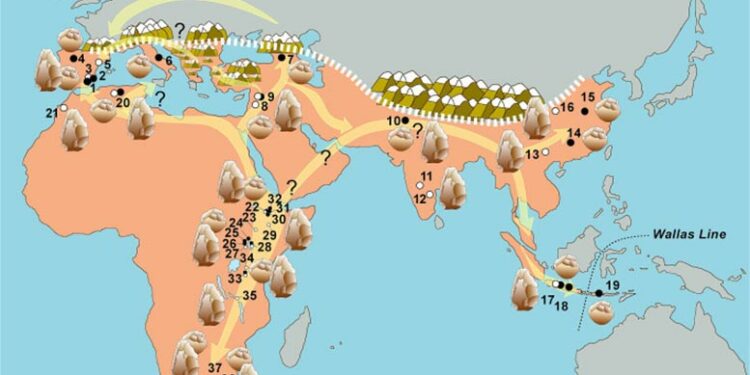These findings suggest that the Orce sites predate the famous Sima del Elefante site in Atapuerca, Burgos, by 200,000 to 400,000 years.
The groundbreaking research favours the Strait of Gibraltar as the migration route for early humans into Europe.
Similarities between lithic industries in Orce and those in North Africa, as well as the presence of African fauna like Hippopotamus and Theropithecus oswaldi, bolster this theory.
“We also defend the hypothesis of the Gibraltar route because no older evidence has been found along the alternative route,” Gibert added.
The researchers note a significant time difference between the oldest human occupations in Asia (1.8 million years ago) and Europe (1.3 million years ago).
This suggests that early humans took over half a million years to cross biogeographical barriers and reach Europe.
Gibert conclude: “These differences in human expansion can be explained by Europe’s isolation from Asia and Africa.
“Humanity arrived in Europe when the necessary maritime technology was developed, similar to the early migration to the island of Flores in Indonesia.”

Source link : https://www.theolivepress.es/spain-news/2024/07/30/remains-dated-from-1-3-million-years-ago-spark-archeological-breakthrough-in-spain-as-scientists-map-migrations-of-early-people-into-europe-through-the-strait-of-gibraltar/
Author :
Publish date : 2024-07-30 06:00:00
Copyright for syndicated content belongs to the linked Source.



